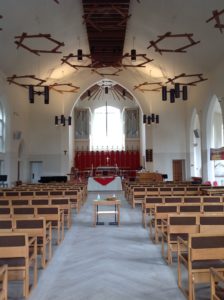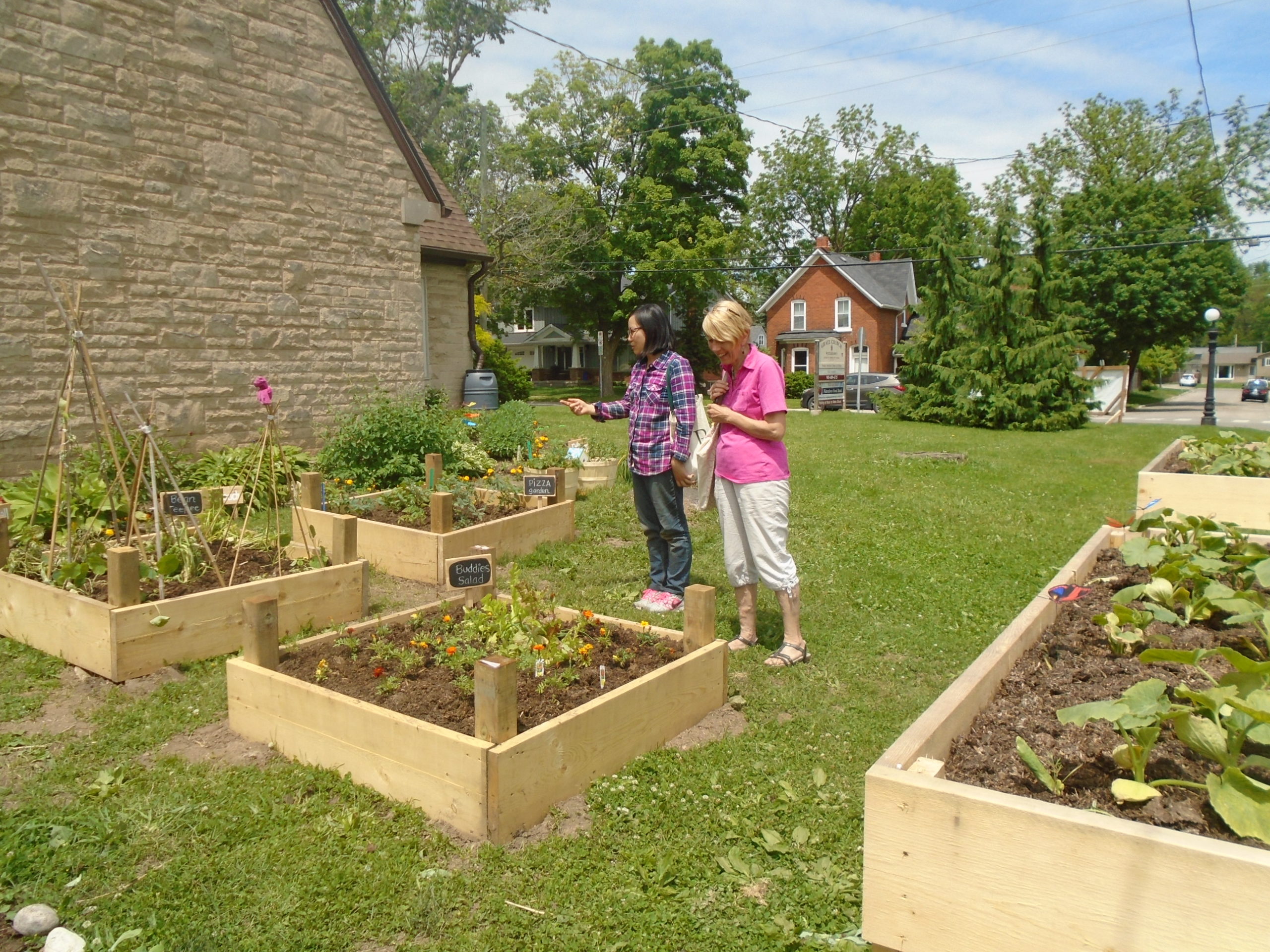Outside…
To celebrate the Season of Creation in September, Climate Justice Niagara would like to showcase some of the amazing church gardens that you have created around the diocese.
If you would like to get involved, please take a photo of your parish rain, pollinator, vegetable, or childrens’ garden and email it to this address.
We need the photo to be of good quality; include a couple of sentences about the garden. It would be nice to see people working! Please include the name of the photographer. We will try to include as many photos as possible. Entries need to be received by the end of June. Thank you!
… and Inside
In February, Climate Justice Niagara hosted a webinar to explain how churches could reduce their carbon footprint as mandated in the 2021 synod motion.
The reason for measuring our greenhouse gas emissions is that it will help us make good decisions and become more faithful stewards of our world.
We have created a walk-through energy audit that is easy to use and can be completed by two or three “green” team members. It takes about two hours to complete, plus some time to collect information on gas and hydro usage from monthly bills. The next thing that is needed is to create a five-year plan for reducing emissions; this will involve researching the age of appliances and HVAC equipment, so you are prepared for possible replacement dates.

Finding solutions to reducing our CO2 footprint is not easy, but it starts with establishing a baseline, which is what the energy audits will do. For example, as part of the audit you will collect your total annual energy consumption. If you then take your total cubic metres of natural gas and multiply it by 0.00192, you will have the total tonnes of CO2 emissions from your building’s gas consumption. This part of the audit can be done for you after you submit the forms.
In terms of electricity, Ontario has a low average CO2 content in our electrical generation, but it varies. During the daytime (especially in the hottest and coldest months), additional electrical load is often met with CO2-intensive natural gas generation, whereas overnight we have low carbon generation available. Accordingly, as we look to solutions for reducing carbon emissions, we want to do three things: 1) look at reducing energy use; 2) switch from gas to electricity; and 3) where possible, move electricity consumption to overnight.
Thank you to the 20 parishes that have started collecting their building data and have submitted results! We will have some initial findings and recommendations to share in the coming months. We hope that other parishes that were not ready to commit earlier in the year—and we understand the constraints and extra work that COVID restrictions have imposed on you all—might be ready to do the energy audit very soon. Some of the data collection can be done during the summer months, and then once winter returns you can check for heat loss around windows and doors.
Climate Justice Niagara hopes that every parish can complete an energy audit before the end of 2022.
Please contact either of us if you need more information or have questions; we want to try and make the procedure as easy as possible. Thank you!
For more information, please email Sue Carson (St. James, Dundas) or Bob Chown (Church of the Incarnation, Oakville).


Resurrection of Hope in Thundering Waters